A Designer’s Cruelty-Free Silk Brand Helps Meghalaya Youth Fight Job Crunch in Their Hometown
When Iba Mallai quit her corporate job to start Kiniho, a cruelty-free eri silk brand, little did she imagine that it would become a platform for Meghalaya's youngsters to earn and sustain themselves in the midst of the state's job crunch.
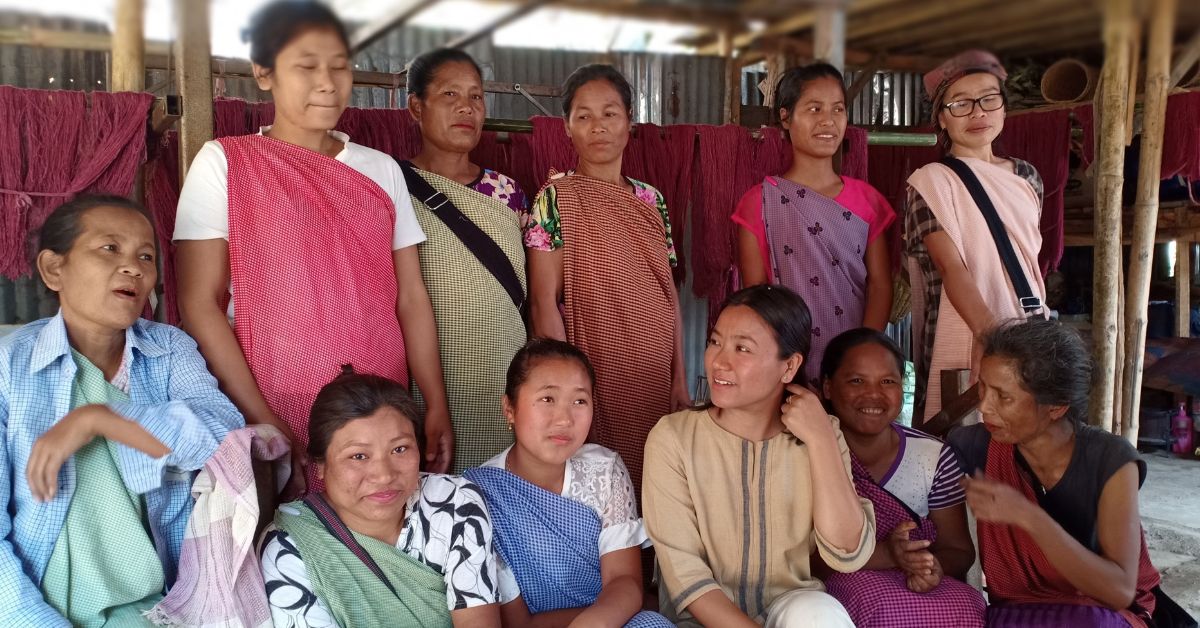
When Magreeta Maiong (27) was in school, she was taught weaving by her neighbour. “I would do it for my pocket money at the time,” she shares. Soon, the simple hobby turned into a deep love for the craft. So, when Magreeta couldn’t find a job after completing her bachelor’s degree in 2017, she turned to weaving once again.
This time, however, she was doing it on a much larger scale. If you check out the sustainable fashion brand Kiniho’s wealth of clothing options, you would find a reflection of Magreeta’s weaving skills. And the founder of the brand, Iba Mallai, couldn’t be prouder.
At Kiniho, Magreeta is one of the 18 artisans who have found a livelihood. Another such skilled worker is Lilisha Trang. Working with the brand for over four years now has been nothing short of transformative for the 27-year-old who was forced to quit her studies after Class 12 due to financial constraints.
“I tried setting up a small stitching shop but it did not do well,” she recalls. When Lilisha heard about Kiniho turning Eri silk (a fibre derived from the cocoon of the Samia Cynthia Ricini moth) into fabric, she was delighted to join and put her weaving skills to the test.
Lilisha’s forte lies in overseeing the order completions. She elaborates, “Once I get the schedule for the month, I inform our master dyer about the amount of yarn we need to dye, how many colours we require for the dyeing process, etc.” Following this, she helps the weavers prepare the yarns.
For Iba, watching these youth of Meghalaya’s Ri Bhoi district work feels empowering while fulfilling her purpose of starting Kiniho, which means ‘these are the ones’ in Bhoi language.
The feeling is personal, she explains to The Better India, adding that her years growing up were spent watching the artisan clusters of Ri Bhoi weave and dye. So, channelling this heritage craft into a brand she now spearheads holds a deep and special meaning.
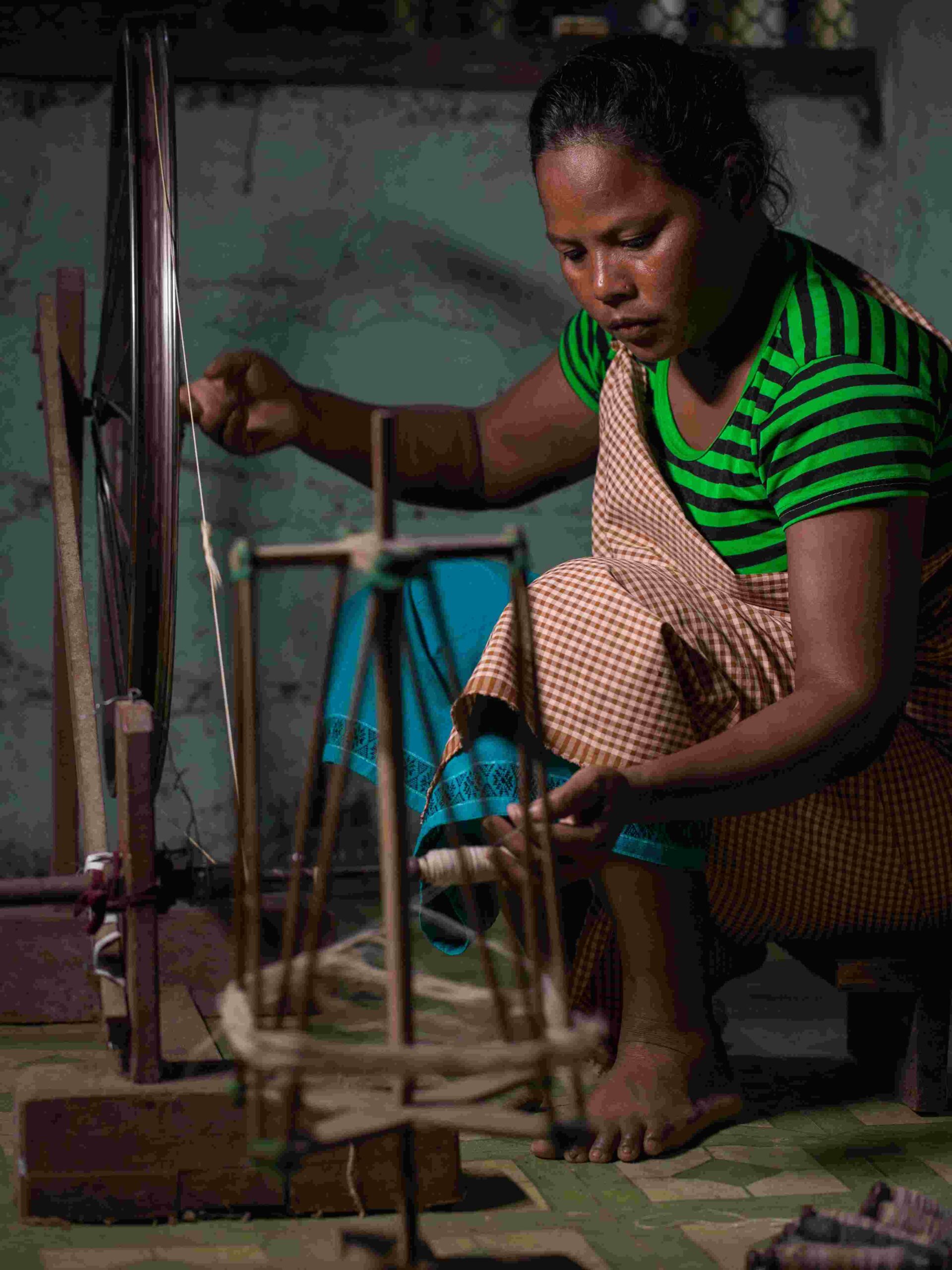
From IBM to Meghalaya’s looms
It’s a usual Thursday morning and the looms of Kiniho are busy churning out cloth materials. As Iba bustles around checking that things are going according to schedule, she is glad she found the courage to leave a thriving corporate job in 2016 and return to her hometown to “give back to it”.
Her time in the corporate world had given Iba a lot. But the most important of these learnings was a yearning to start a venture of her own some day. However, limited exposure and a gap in entrepreneurial knowledge put a dampener on this dream.
In 2016, unable to ignore her calling any longer, Iba returned to Meghalaya from Bengaluru with a fire in her belly and a small investment amount with which she started Kiniho.
“I’d say the most important thing to start a brand is passion. Once you have the urge inside you; the fire that you want to do something, know that it will happen. You just have to believe in what you want to do and believe in its potential to grow,” she emphasises.
The idea to start Kiniho was rooted in her intent to help her people.
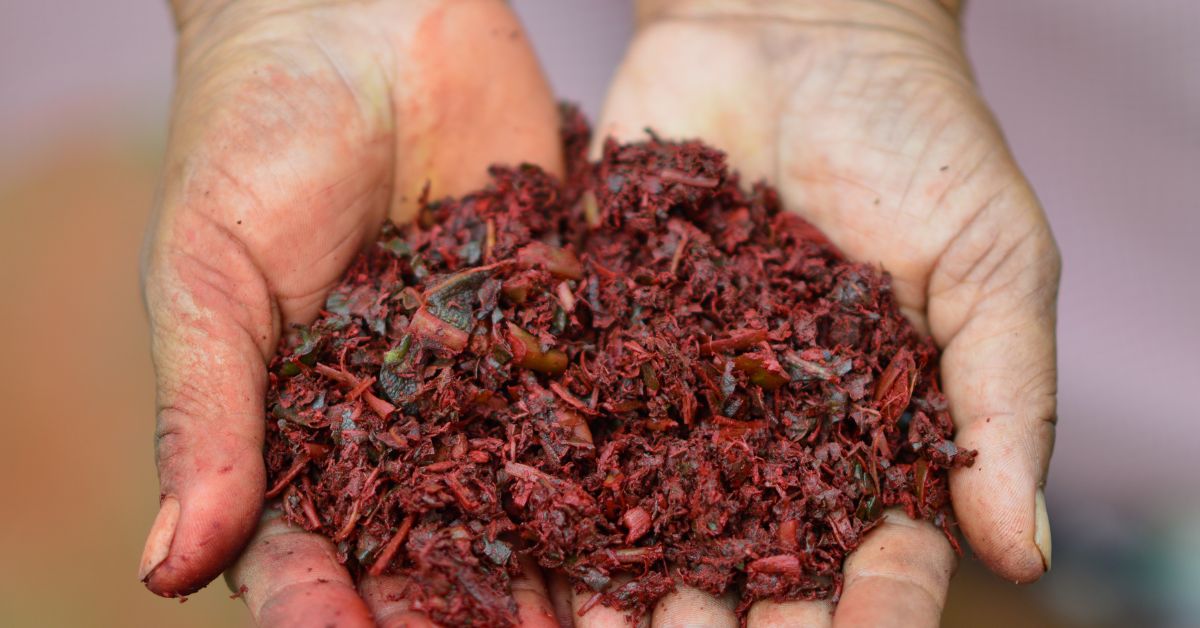
“There is a dearth of jobs in Meghalaya. The youth here do not get work opportunities and students drop out of school early. Kiniho gives them a source of income. It enables them to use their weaving skills to support their livelihoods. It isn’t just a business, but something with potential to aid the community,” she adds.
Magreeta agrees. The brand has given her several platforms to explore her creativity. “Recently, I got the opportunity to travel to Mumbai as we had to do live demonstrations of our floor loom weaving at the Khadi Bhandar,” she quips.
Along with this, Iba adds that the artisans are constantly encouraged to learn new skills and put them to use.
For instance, Magreeta, who specialises in traditional loom work, has been spending a lot of time learning to work on the bigger looms such as the flying shuttle loom. “In comparison to the three days it takes to weave a shawl on the floor loom, the flying shuttle loom takes one day.”
Having such talented artisans is a boon to the brand. But, as Iba points out, what they are doing is not new. For decades, Meghalaya has prided itself on the production of ‘Eri silk’. The quality of work led to Umden-Diwon village in Meghalaya being declared as the world’s first Eri silk village in February 2021 by the state government.
Rooted in consciousness and sustainability
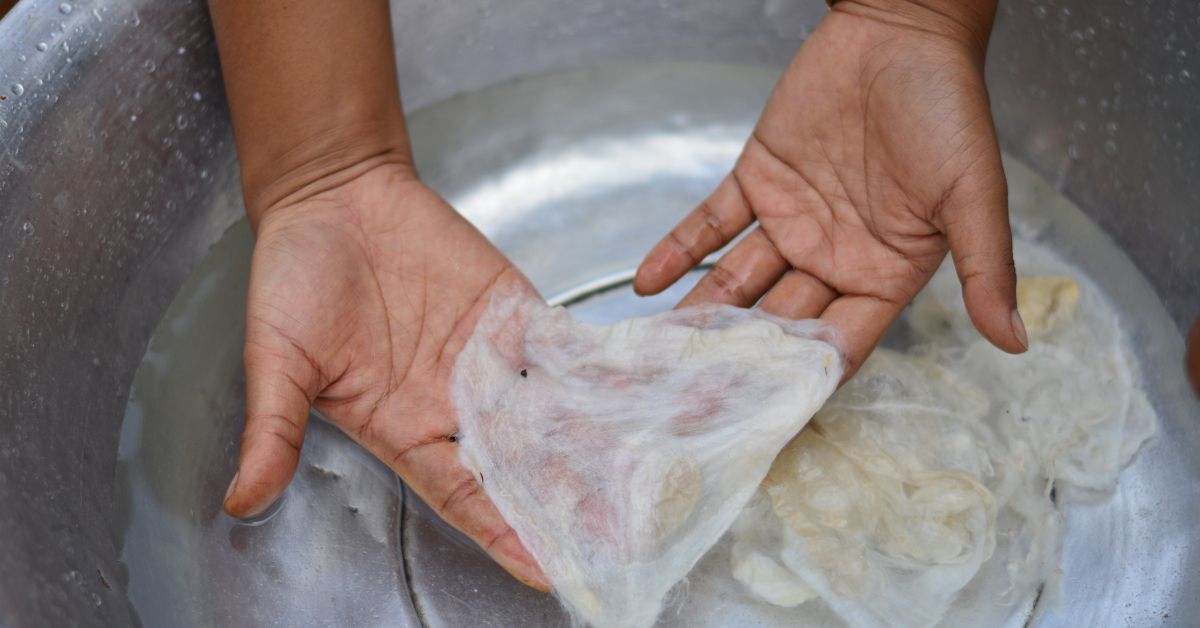
When the quality of silk is spoken about, the Mulberry silkworm Bombyx mori is undeniably one of the most popular species. However, the process of obtaining the shiny mulberry silk is cruel. Once the worms have had their fill of the mulberry leaves, they begin secreting a protein fibroin.
This hardens on coming into contact with the air, forming a cocoon in due time. The cocoons are closed, leaving the worms helpless inside. To obtain the silk thread, these cocoons are then boiled. Needless to say, the worms inside are killed.
Eri silk is different. The cruelty-free silk is obtained from the cocoons of the Eri silkworm Samia Cynthia Ricini that feed on castor leaves. While the process of forming the cocoon is similar to that of a Mulberry silkworm, the difference lies in the shape of the cocoon, which in the case of Eri silkworms, is open at one end.
Three weeks into forming the cocoon, the Eri silkworm emerges as a moth, leaving the empty cocoon behind. Silk thread can then be harvested without harming the worms. A majority of the homes in Meghalaya are part of this cottage industry producing “peace” silk. And Iba sees Kiniho as a way of carrying forward this legacy.
She adds that the brand opts for traditional looms, thus eliminating the need for electricity. The process from obtaining the cocoons to producing the final designs takes around a month.
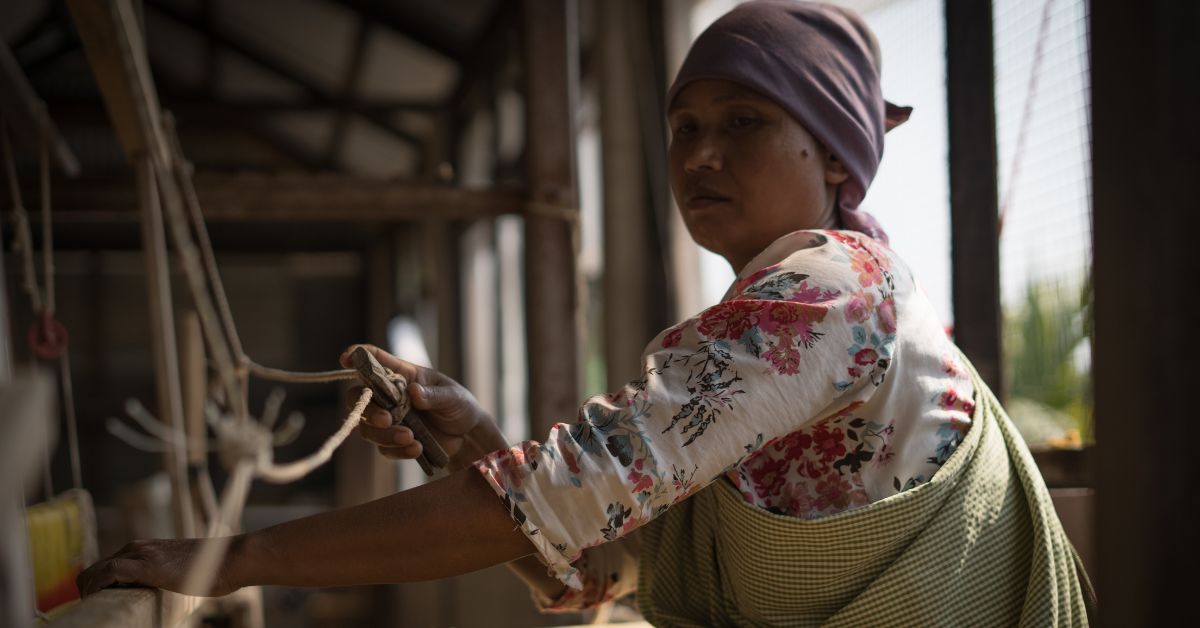
“Once the farmers give us the cocoons, they are flattened, boiled and then hand spun. The yarn is then dyed and the fabric is woven. We procure the yarn from 20 farmers,” she explains.
Kiniho’s designs have found a spot in the international markets too and they export to Australia, the Netherlands, the US and the UK, among other places. The brand gets an average of 16 orders a month and the artisans are paid Rs 14,000 with master weavers drawing in more.
If you are looking to buy conscious clothing, you can check out Kiniho’s options here.
(Edited by Padmashree Pande)
If you found our stories insightful, informative, or even just enjoyable, we invite you to consider making a voluntary payment to support the work we do at The Better India. Your contribution helps us continue producing quality content that educates, inspires, and drives positive change.
Choose one of the payment options below for your contribution-
By paying for the stories you value, you directly contribute to sustaining our efforts focused on making a difference in the world. Together, let's ensure that impactful stories continue to be told and shared, enriching lives and communities alike.
Thank you for your support. Here are some frequently asked questions you might find helpful to know why you are contributing?














